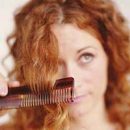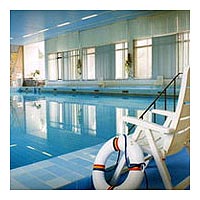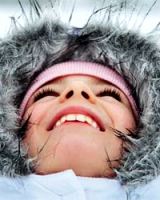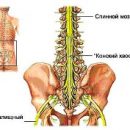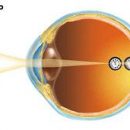Atopic dermatitis - common disease. For the first time it appears in children of 7-8 months. How to understand - your child has atopic dermatitis or not? What to do if he still has?
Content
Atopic dermatitis - chronic, recurrent disease. This means that the disease is constantly present in the human body, although it can be manifested only during exacerbation. Symptoms of atopic dermatitis include dryness, skin inflammation and intense itching.
Many people who do not suffer from atopic dermatitis are related to him as a simple rash, however, for millions of children and people who care for them, atopic dermatitis is a chronic disease that prevents full-fledged life. At the time of the manifestation of atopic dermatitis can be so insignificant that nothing is noticeable. However, it is often of this disease to such a degree heavy that prevents sleeping, go to work or to school and engage in habitual affairs.
Atopic dermatitis is not infected - it cannot be transmitted from man to man. Many children with atopic dermatitis confuse the appearance of their skin, constant itching and continuous, sometimes involuntary combing. Obviously, atopic dermatitis does not pose a threat to life, but it is undoubted that this disease significantly affects the quality of life.
Your child is not alone
 Atopic dermatitis - common disease. Only in the USA 35 million people suffer from him. At the same time, the number of patients with atopic dermatitis increased significantly over the past fifty years.
Atopic dermatitis - common disease. Only in the USA 35 million people suffer from him. At the same time, the number of patients with atopic dermatitis increased significantly over the past fifty years.
Atopic dermatitis - hereditary disease. If both parents suffer from atopic dermatitis, then with a probability of 80% of the disease and their child. Moreover, recently the spread of atopic dermatitis among the members of one family is becoming increasingly frequent. 90% of people have atopic dermatitis diagnosed during the first five years of life. As the symptoms of the disease can weaken or even disappear, but many people have the manifestation of atopic dermatitis remain throughout. In addition, the development of atopic dermatitis is often accompanied by the occurrence of allergies and / or asthma.
During the poll of patients with atopic dermatitis and their parents, 65% of respondents noted that for them or their children «It is very important to keep your skin healthy and clean». At the same time, 65% of parents also «want their children to get the most effective preventive treatment».
During the exacerbations of atopic dermatitis, there is a tendency to re-defeat the same parts of the body, but depending on the age of the child, the place of manifestation of signs of illness can change.
In young children, signs of atopic dermatitis usually manifest themselves on face, elbows or knees and, possibly, in other parts of the body.
What are the most common provoking factors?
Immune cells of the skin of people, patients with atopic dermatitis, have increased sensitivity. Exacerbations of atopic dermatitis - the reaction of these cells to certain provoking factors. The identification and elimination of these factors helps to facilitate the state of people suffering from this disease.
Sharp changes in temperature and humidity lead to excessive dryness of the skin or increased sweating, which causes an exacerbation of atopic dermatitis or impairs its flow. To avoid this, it is necessary to maintain a stable moderate temperature and humidity. For these purposes, it is best to use air conditioning (summer) and air humidifier (winter). In addition, it is necessary to constantly apply moisturizing agents that will allow the skin to preserve the optimal level of humidity.
Children suffering from atopic dermatitis should avoid contact with chemicals that can cause skin irritation. In addition to quite obvious - for example, pesticides, dyes and t.NS. - Alcohol, soap, flavors and binders include potential stimuli. In addition, such chemicals may be contained in cosmetics, cleaning and detergents, air fresheners, toilet paper, linen rinsing and T.D. Enough to remember this, carefully study the labels and eliminate these stimuli in time to reduce the number of exacerbations of your child. In addition, it is necessary to remember: the use of hypoallergenic products does not protect patients with atopic dermatitis from exacerbations. Under the term «hypoallergenic» It is understood by the product, unable to cause the skin reaction of wealthy people. The skin prone to the development of atopic dermatitis has increased sensitivity, so even hypoallergenic products may cause exacerbation of the disease.
Even such a simple thing, like clothing, affects atopic dermatitis. People suffering from this disease, it is necessary to avoid tissues that can cause itching - for example, wool. It is recommended to carry things from soft tissues like cotton - it significantly reduces the likelihood of skin irritation. All new things, linen and towels must be carefully loosen using a small amount of liquid detergent. After washing all things need to rinse the maximum number of times to remove soap residues. At the same time, try not to use the linen rins - the substances contained in them often cause skin irritation.
In children with predisposition to atopic dermatitis, the development of this disease or its deterioration can often be caused by an allergic reaction to certain foods (milk, wheat, peanuts) or inhaled allergens (dust pliers, mold mushrooms, pet wool). Try to protect your child from such allergens. In addition, you must consult with a doctor who will help make a list of allergens dangerous for your child.
Signs or symptoms of atopic dermatitis include:
Your child has atopic dermatitis or not?
The only way to make sure your child is sick atopic dermatitis - Consult with a doctor. However, if your child is diagnosed «atopic dermatitis», Do not despair - proper treatment allows you to control the course of this disease.
Types of treatment and possible side effects
Only a doctor can determine the presence of your child atopic dermatitis and recommend a suitable treatment program. To prevent exacerbation of the disease, it is necessary to eliminate all provoking factors. Nevertheless, this may not be enough. Atopic dermatitis can not be cured, but there are many drugs that make it easier or eliminate itching, reduce the redness of the skin and help the skin look healthy, and also allow you to control the disease, reducing the effect of atopic dermatitis on your child's life and his loved ones.
In children, skin is more sensitive and gentle than in adults. Therefore, your child's doctor will carefully select the most appropriate treatment.
The first step in skin care is the daily use of moisturizing agents that protect the skin from drying. Most often such funds are produced in the form of creams. In some light cases of atopic dermatitis, the regular use of moisturizers can be sufficient to control the disease. Some moisturizers, especially fat, may not like the child. Nevertheless, remember that it is necessary to apply these funds every day, even if there are no external manifestations of atopic dermatitis on the skin.
Corticosteroid («Steroid») Creams and ointments can quickly reduce redness and facilitate the itching of inflamed skin, especially with severe exacerbations. As a rule, corticosteroid drugs must be appointed by a doctor. Steroids can quickly reduce the external manifestations of the disease, but such drugs are not intended for long-term use. As a rule, the recommended life of steroids is limited to two weeks. A longer use of these drugs can lead to the manifestation of side effects - for example, skin thinning. To reduce the risk, your child's doctor must recommend the weakest steroid capable of helping the patient. However, remember that even weak steroids should not be applied to the treatment of a child for a long period of time.
There is a new type of treatment of atopic dermatitis - nonsteroidal drugs, known as Topic inhibitors Calcinerine (TIK). This method of combating atopic dermatitis began to be applied more recently. Tick-preparations not only help reduce redness and facilitate the itching of inflamed skin, but also can provide long-term disease control.
Calcineurine topical inhibitors eliminate the immediate symptoms of the disease during the exacerbation, while using such drugs can be used for much more than a long time than steroids. In addition, tick-preparations provide a longer remission (time without exacerbations) and the best control of atopic dermatitis.
Preparations for treating itching
To facilitate the itch caused by the exacerbation of atopic dermatitis, antihistamines may also be appointed. However, some of these drugs cause drowsiness. At night, this contributes to improved sleep, but during the day when a person is at work or at school, the use of any drug with a sedative effect should be avoided.
Patients with atopic dermatitis of more other people are susceptible to infectious diseases of the skin. In the event of a bacterial infection, antibiotics are prescribed, which cause the death of bacteria - infection pathogens. However, excessive use of antibiotics can reduce the effectiveness of such treatment - with the time of the bacteria, it becomes less susceptible to drugs. If applying preparations for the treatment of atopic dermatitis when the first symptoms of this disease appears, you can reduce the risk of skin infection and avoid using antibiotics.
Itching makes children irritable and makes them wake up at night. In addition, children confuse the appearance of their skin - inflamed, blushing and covered with scales. In addition to drug treatment, there are several more methods that will help reduce the influence of the disease to the child's life:
What else can I take to care for skin and prevent exacerbations from my child?
- Make sure that your child's room is not too hot to man as small as possible during sleep.
- Do not let the skin become too dry.
- Avoid too hot soul or bath, as well as too long stay in water. Take a bath or shower no longer than 10 minutes at water temperature not higher than 38°WITH.
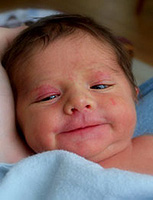 Try to how much it is possible not to apply soap to the skin area affected by atopic dermatitis, or on the dry skin. Instead of soap, it is recommended to use special cleaning agents that do not contain soap.
Try to how much it is possible not to apply soap to the skin area affected by atopic dermatitis, or on the dry skin. Instead of soap, it is recommended to use special cleaning agents that do not contain soap.
- Do not rub the wet skin - dry it, wet and patting the skin with a soft towel.
- For 3 minutes after swimming, apply a moisturizer on the skin - this will save in the skin moisture.
- Use only a cleansing and moisturizer recommended by the doctor. Avoid perfumes or rinsers for linen.
- If possible, avoid contact with wool products.
- If your child has allergies to dust or dust ticks, use protective coatings for pillows and mattresses. In addition, it is necessary to wash bedding in hot water as often as possible.
- If itching hinders to sleep, you can calm the skin with a cool wet washcloth from a terry fabric. After that, it is recommended to apply a moisturizer to the skin and give the child a sedative antihistamine drug (if it complies with the recommendations of the doctor).


